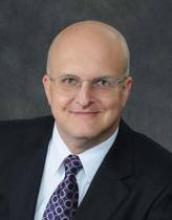Electronic prescribing is getting better, but challenges remain related to e-renewals, mail-order pharmacy connectivity, and pharmacy processing of e-prescriptions, based on survey results from 114 individuals involved in e-prescribing in 97 health care organizations.
The survey included physician practices, community pharmacies, and mail-order pharmacies using the Surescripts e-prescribing network (J. Am. Med. Inform. Assoc. [doi:10.1136/amiajnl-2011-000515]).
Respondents reported overall satisfaction with the system, but noted the need for improvements in technical standards, in network connectivity on the mail-order side, and in system and database design, lead author Joy Grossman said in an interview.
From the physician’s perspective, the system often creates either duplicate prescriptions or faulty formatting, Dr. Yul Ejnes said in an interview. Dr. Ejnes, chair of the Board of Regents for the American College of Physicians and an internist based in Cranston, R.I., has been using e-prescribing systems since 2003.
"One thinks of electronic prescribing as [a] totally seamless, no-extra-effort-needed process but there does need to be some human intervention," he said.
The most notable problem, mentioned by 75% of the physicians responding to the survey, is unreliable transmission of prescriptions to mail-order pharmacies. Dr. Ejnes said resolving such inefficiencies takes up extra time for physician and pharmacists.
Another inefficiency noted in the survey is that 94% of retail pharmacies nationwide are registered users of the Surescripts system, yet nearly half of participating local pharmacies and three national pharmacies do not send renewal requests electronically.
According to the survey, pharmacies said they didn’t use the electronic systems because they either lacked the functionality or wanted to avoid Surescript transaction fees. Instead they relied on phone or fax systems.
Pharmacies using electronic systems reported challenges with inconsistent data fields for physician and pharmaceutical e-prescription programs, requiring editing and manual data entry.
As use of electronic systems increases in response to federal incentives, Ms. Grossman said stakeholders, including vendors and the federal government, will have to work together to address the challenges.
Surescripts spokesman Ron Cronin acknowledged in an interview that the technology related to the transmission of prescriptions between practices and pharmacies is a common concern that stakeholders will need to address.
With increasing financial incentives, e-prescribing has continued its expansion among office-based physicians, increasing from fewer than 10% in 2008 to 52% in 2011.
Today, one in three prescriptions is routed electronically, according to Mr. Cronin, who attributed the increase to a greater comfort level with the technology.
In Dr. Ejnes’ state of Rhode Island, every retail pharmacy had e-prescribing systems in place by 2009, according to the Rhode Island Department of Health.
And, despite the inefficiencies, e-prescribing helps more than it hurts, Dr. Ejnes said. His electronic system has saved him several hours per week that he previously devoted to handling prescription renewals.
"Even with all these problem areas that are identified I think overall [providers] are going to find their lives to be less complicated with e-prescribing," Dr. Ejnes said. The problems noted by the survey respondents "aren’t minor issues but they don’t justify not going there."


